A closer look at the production of the viral hit series
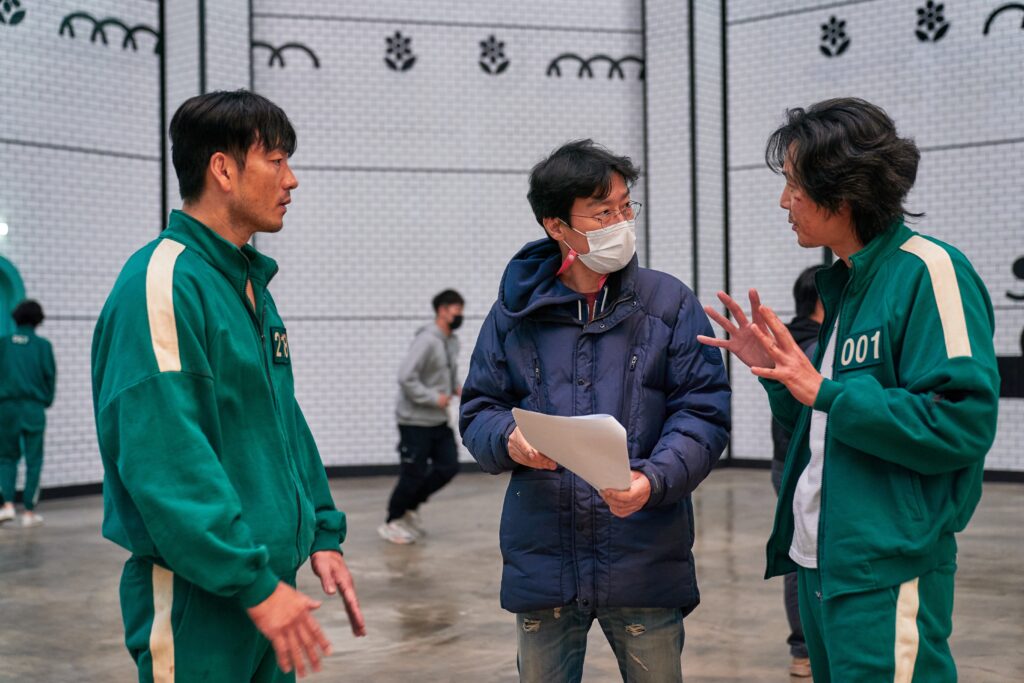
Squid Game is taking the world by storm with its thrilling story of desperate people who sign up to play mysterious children’s games in the hopes of winning a large cash prize. While the series appears to be enjoying instant success, the road to creating it has been long and difficult for series creator and director Hwang Dong-hyuk. Here’s a behind-the-scenes look at how Squid Game came to life.
The Beginning:
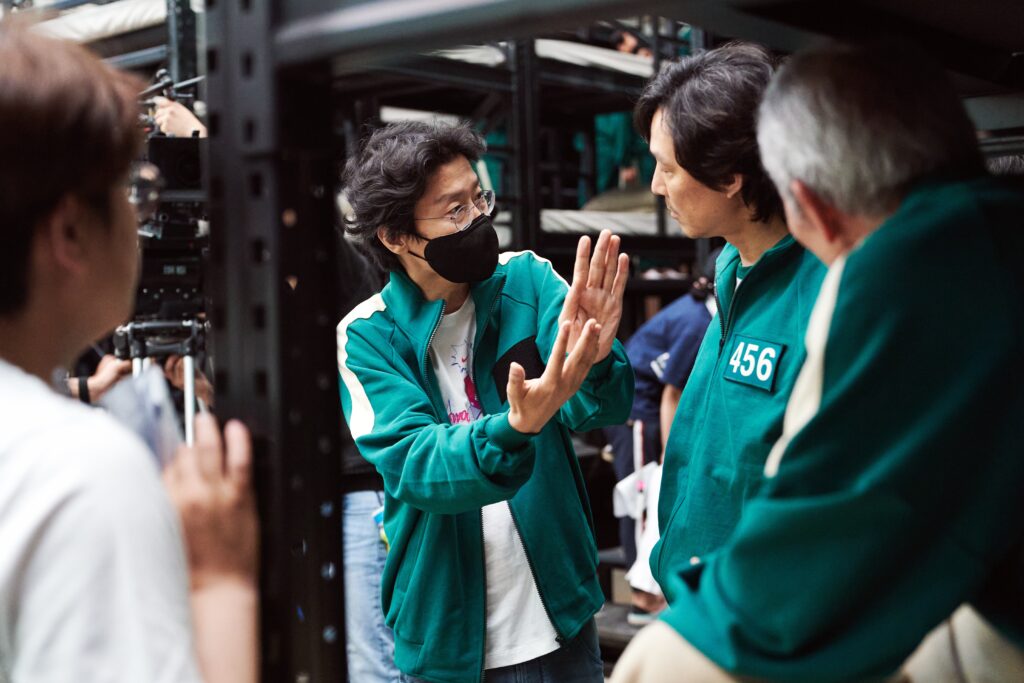
Director Hwang Dong-hyuk first conceived the idea and began writing in 2008. He said, “The year 2008 was actually right after my debut. That was a time when I frequented comic book stores. As I was reading a lot of comic books, I thought about creating something like a comic book story in Korea, and I finished the script in 2009.” As a film director, Hwang Dong-hyuk originally planned for Squid Game to be a film.
A Challenging Journey:
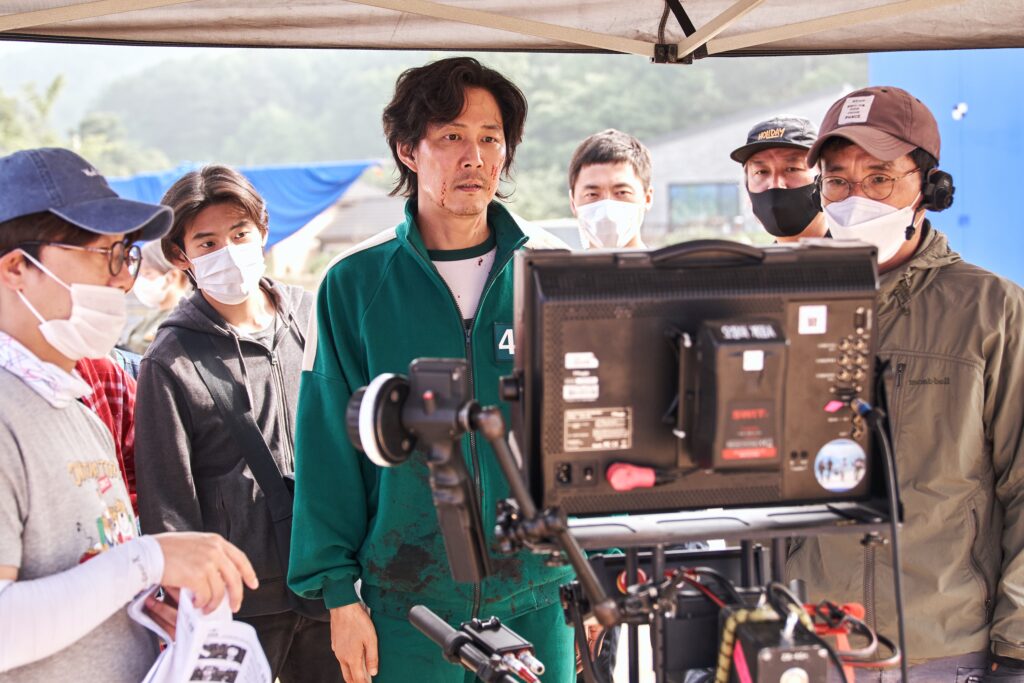
Despite finishing the initial screenplay for Squid Game in 2009, Hwang Dong-hyuk had to shelve the idea and work on his hit films Silenced (2011), Miss Granny (2014), and The Fortress (2017) before being able to create the series. The director revealed, “At the time, it seemed very unfamiliar and violent. There were people who thought it was a little too complex and not commercial. I wasn’t able to get enough investment and casting was not easy. I dabbled in it for about a year, but I had to put it to sleep.
About 10 Years Later:
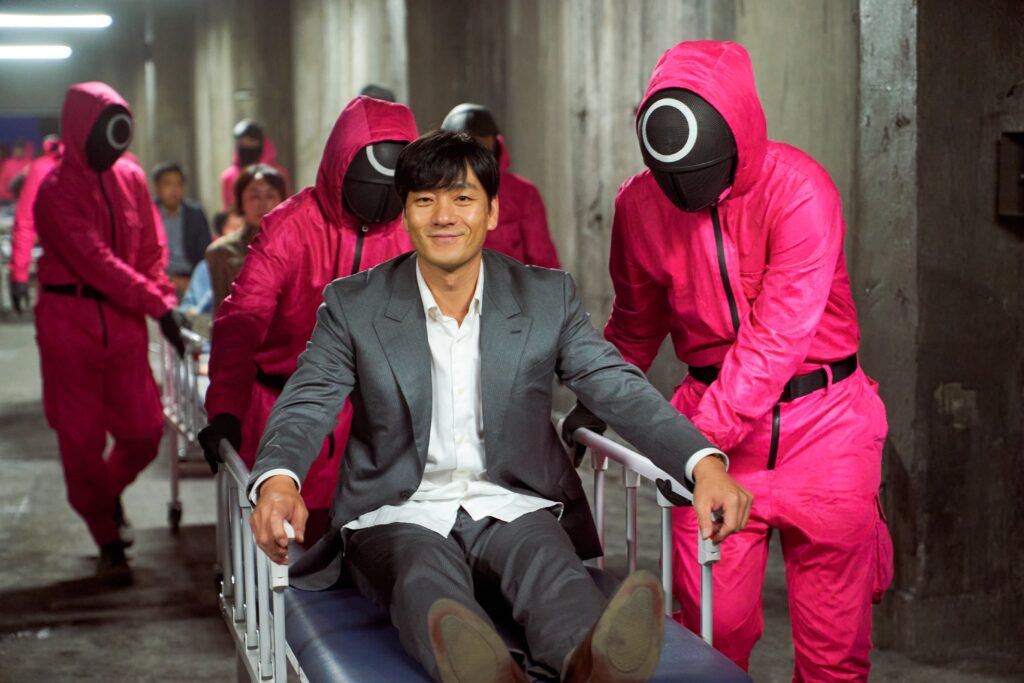
About 10 years or so after conceiving the idea for Squid Game, Hwang Dong-hyuk was finally able to actualize it and start working on it. He shared, “Thanks to Netflix, there was no limit and I was given creative freedom to work as I wanted to.” Through this opportunity, the director expanded his story into a series that is capturing a global audience now.
The Intention Behind the Art:
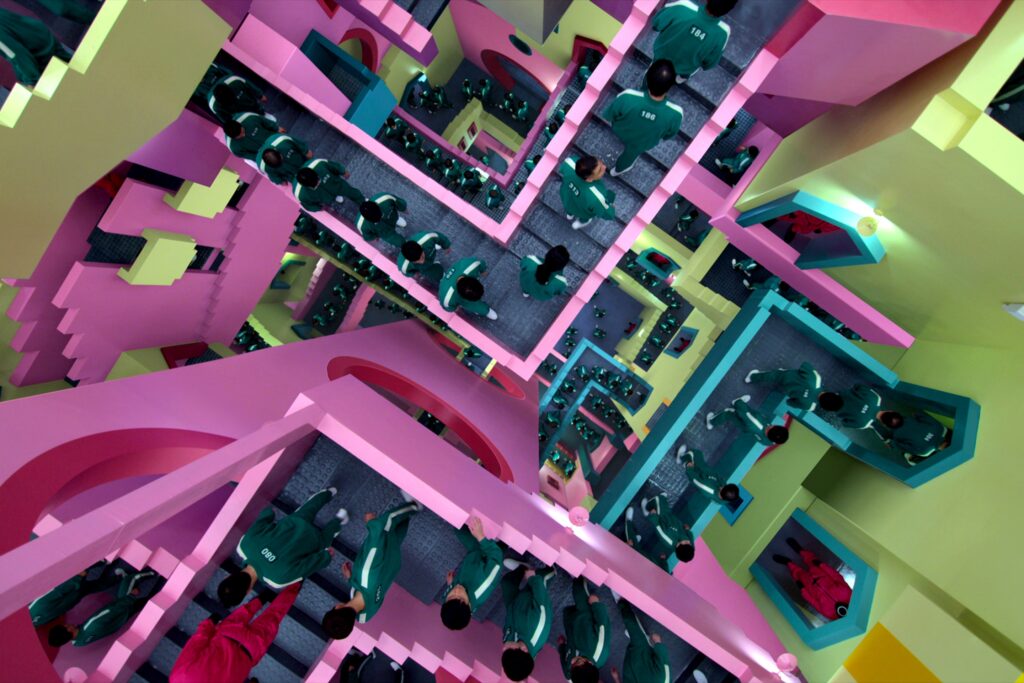
One of the most visually noticeable aspects about the series is the unique, colorful aesthetic which sets it apart from other survival stories. Art director Chae Kyoung-sun said, “We created the places and displays trying to make the viewers think about the hidden intentions of Squid Game with us.” The large-scale sets and vibrant colors transport viewers into a realistic yet fantasy-like world.
Simple Childhood Games:
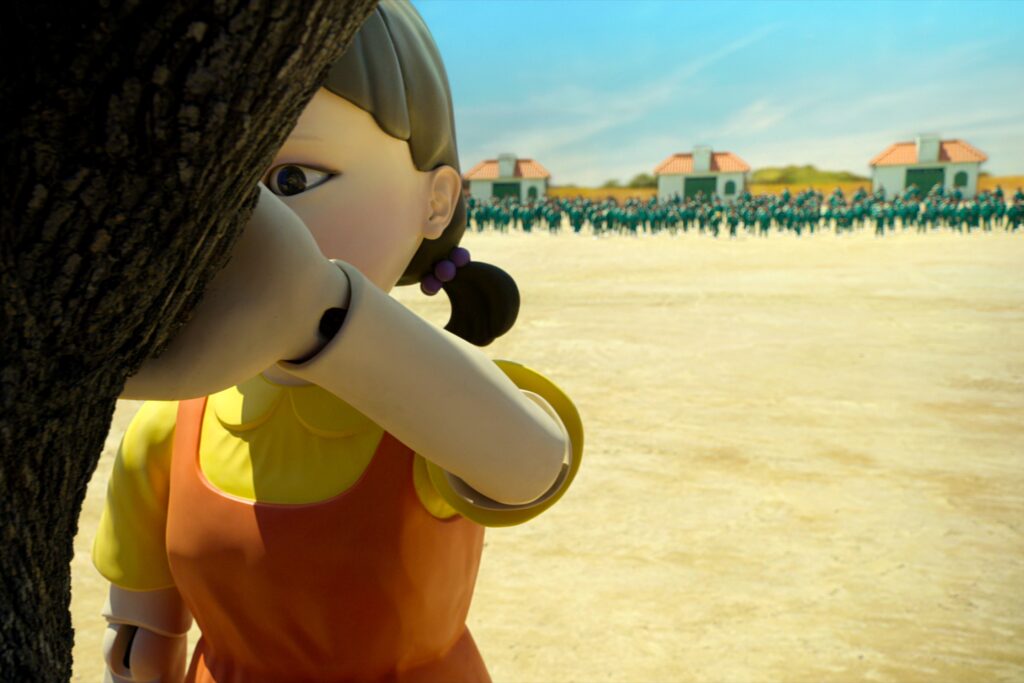
Director Hwang Dong-hyuk deliberately selected childhood games that are relatable and easy to understand. However, the details behind the games shows how much planning went into each round. For example, the first game is Red Light, Green Light which is a game that most should be familiar with. The robot is modeled after a girl from children’s textbooks making the scene all the more shocking as childhood fun transforms into a harrowing fight for survival.
Portraying Realistic Emotions:
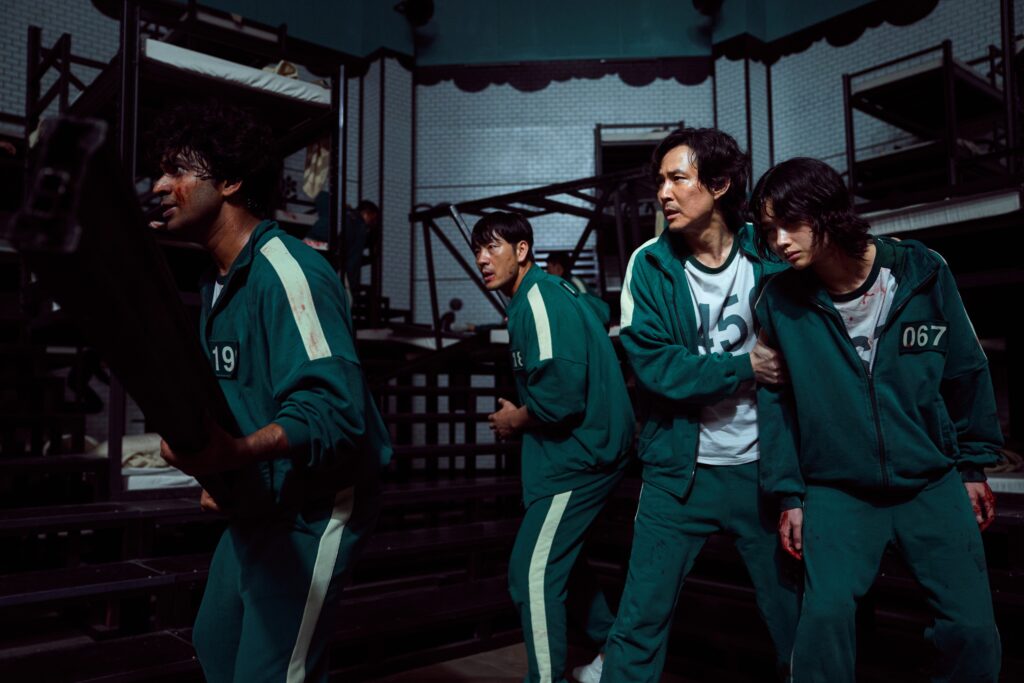
The enormous sets helped lend to realistic emotions portrayed by the actors. Director Hwang Dong-hyuk said, “I tried to stimulate the atmosphere of real playgrounds, so that the actors can feel like they’re really doing something in there. I thought those kinds of sets can give more of a sense of reality to the actors’ performance.” The juxtaposition of an urgent need for survival set in an innocent, childlike playground is quite striking and emotional.
Creating Nostalgia:
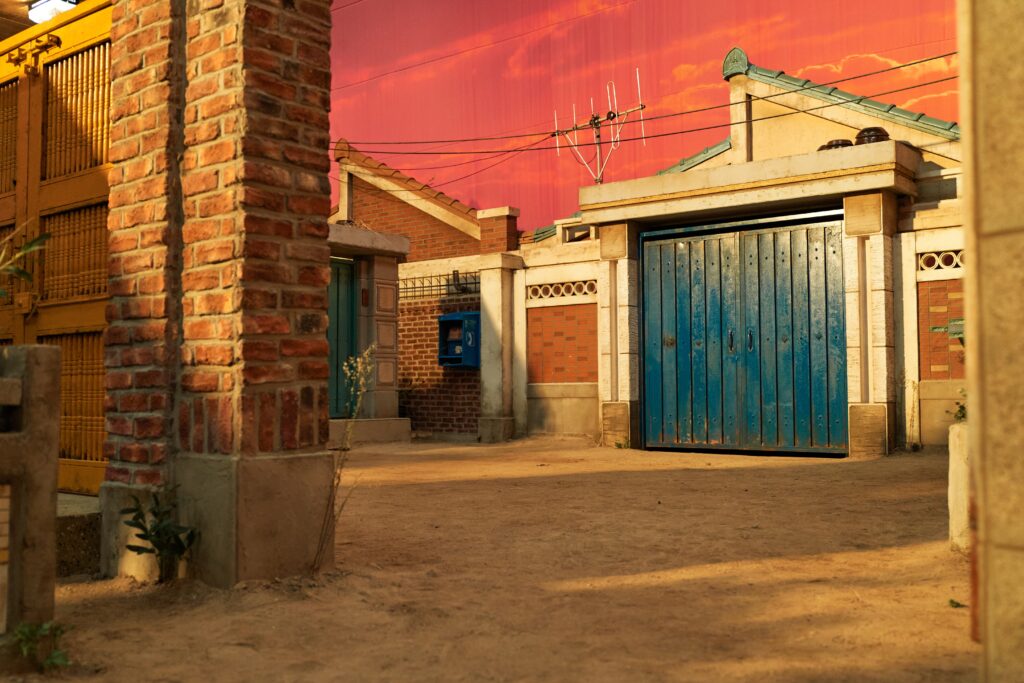
One of the sets that took the longest to create is a replication of typical Korean neighborhood alleyways in the 70s and 80s. Actor Park Hae-soo commented, “The playground felt so real, like the actual back alleys of the past. It was like being in front of real homes of the past. It created a strange nostalgia and an odd tension.” Actor Heo Sung-tae also praised the art team for their attention to detail with sprinkling soil in various spots in the alleys.
Making It Universal and Korean:
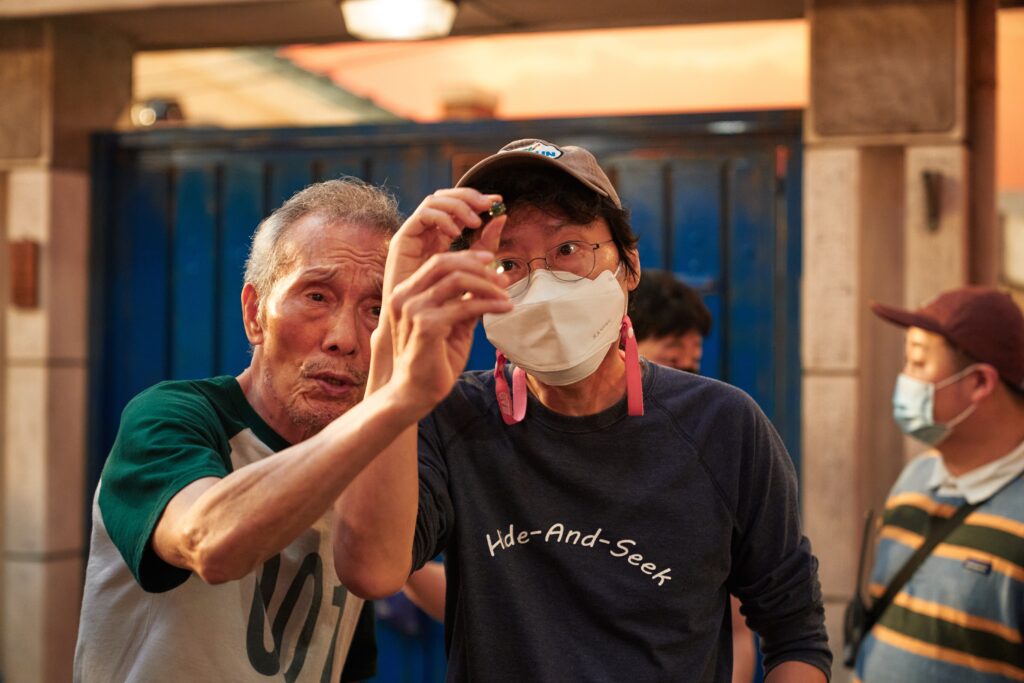
All of these aspects combine to create a story that is both universal and Korean. Most of the childhood games are ubiquitous and some of them are uniquely Korean. The human emotions and struggles the characters go through will strike a chord within many people irrespective of where they are from. Director Hwang Dong-hyuk commented, “As a survival game it is entertainment and human drama.”
Delivering a Poignant Message:
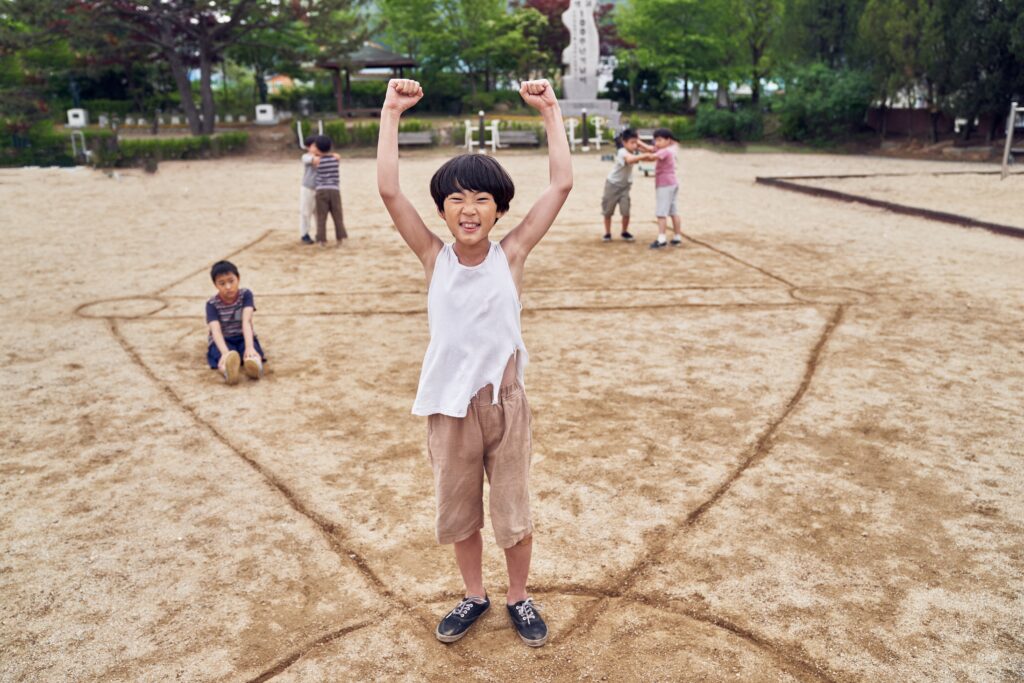
The series examines human nature and how we change from childhood to adulthood through showing adults revisit and play children’s games. Director Hwang Dong-hyuk shared, “I wanted to write a story that was an allegory or fable about modern capitalist society, something that depicts an extreme competition, somewhat like the extreme competition of life.” It’s not all depressing though, as we see the characters hold onto their humanity and hope. The commentary on human nature and society is definitely thought-provoking.
For more behind-the-scenes details, view the featurette here and watch Squid Game, only on Netflix!

